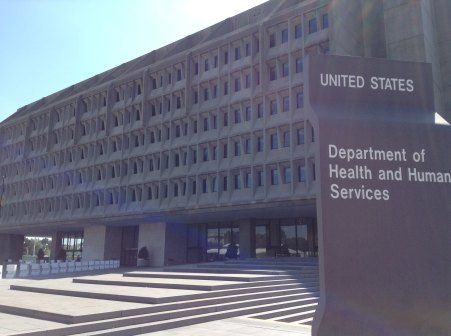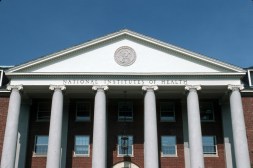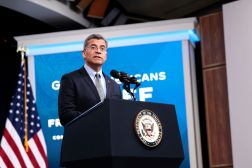Maker movement at center of HHS’ innovative strategy

With time running out for the current administration, the Department of Health and Human Services IDEA Lab is looking to the entrepreneurial maker movement to make fast improvements to the hardware industry that supports Americans’ health and wellness.
HHS Chief Technology Officer Susannah Fox first told FedScoop in June 2015 of her ambitions to drive medical innovation in the hacker and maker movement — a phenomenon created by the re-emergence of do-it-yourself inventors and physically handy manufacturers using technological advances like 3-D printers and cheap microcomputers.
Fox had just stepped into the CTO role then, but in recent weeks she has made the concept an official cornerstone of her office in an initiative called Invent Health.
“Our goal is to enhance the opportunities for innovators and entrepreneurs, through our government programs, to engage in a community of problem solvers organizing around the ‘hardware’ of health and human services,” Fox wrote in a memo about Invent Health, which she circulated to the heads of HHS’ different operating and staff divisions.
Speaking at a town hall event last week focused around Invent Health, she said “the opportunity we see now in the technology landscape is in the hardware of health and human services — medical and assistive devices, both low-risk and highly regulated, all along the spectrum between homemade, MacGyver-type innovation and highly sophisticated, complex manufacturing.”
Her introductory memo sparked a conversation inside the department that opened her eyes to leaders who face the same barriers to innovation she and her colleagues have been addressing in the IDEA Lab, which she heads as HHS CTO.
“I started hearing from people I don’t think I otherwise would’ve met,” Fox told FedScoop. “And these are people who have been thinking for many years about the challenges entrepreneurs have. What’s been wonderful is to hear from colleagues who’ve been thinking about this from their domain who are coming forward and saying ‘fantastic! I’m so glad you’re shining a spotlight on this area. Here’s what I can contribute.’”
She discovered offices in the department already promoting invention, physical hacking and tinkering, and outsourcing it to private entrepreneurs and inventors as a way to solve some of American’s biggest health concerns. The Food and Drug Administration hosted a challenge competition in which academics and private entrepreneurs created five physical devices to test for salmonella. Likewise, a team at the National Institutes of Health created a 3-D Print Exchange to help scientists and inventors in the biomedical research arena.
Invent Health is officially in public beta to spread awareness of the initiative, but the precise direction it’s headed and where it might end up are still unknowns for the IDEA Lab. The team is looking to launch an online platform soon so people in HHS and outside the federal workforce can pose ideas and discuss their curiosity around this space. After talking with colleagues across HHS and the federal government in response to her memo, Fox said, “we know this is an opportunity for us as a department. There’s an open field that we see.” But, “in a lot of ways I ended up with more questions than answers.”
Fox is thinking of the Invent Health movement like the open health data movement pioneered by her predecessor, former HHS CTO Todd Park — not so much to find and fund innovation in the space, because as a non-grant-making organization it can’t, but to “create space for unexpected conversations,” Fox said. Like the town hall meeting last week, some of the first open health data meetings “were small meetings that grew and grew and grew until now we have the Health Datapalooza,” she told FedScoop.
“In the same way that I’m pointing to this open field of the possibility of 3-D printing and design and manufacturing tools becoming more available, and the idea of citizen innovation coming into medical and assistive device innovation, that’s the same spirit that animated the health data movement that Todd began,” Fox said.
The next step is to spread the community outside of HHS and D.C. through regional town halls with other agencies. Fox wants to host one in Texas with NASA next.
“What we have is the ability to convene all of these interesting different partners where we start to talk, for example, with our colleagues from NASA about innovating in a low-resource environment of space and how that has parallel with our colleagues who are setting up a clinic in south Sudan,” she said. “How might we learn from each other across those federal agencies, and also just across HHS?”
Fox knows she and the IDEA Lab can’t solve this problem in the time remaining in this administration. But by putting their heads together with likeminded individuals around government and the inventors of the private world, she hopes they can prepare the next administration to embrace the power of the maker movement.
“We know that in the time remaining in this administration we can’t solve this problem … but we can certainly shine a spotlight on them and identify the barriers,” Fox told FedScoop. “And by doing that, we can hand over to whomever is the next CTO and next secretary this opportunity we see in terms of innovation.”





